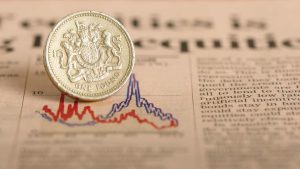I still don’t understand the Vodafone share price!


The Vodafone (LSE:VOD) share price soared over 7% yesterday (20 May) following the release of the group’s results for the year ended 31 March 2025 (FY25). But after a day of reflection, I still don’t get it.
Throughout the year, the company’s directors have been telling investors that adjusted EBITDAaL (earnings before interest, tax, depreciation and amortisation, after leases) would be €11bn. And they were right. The ‘business as usual’ announcement makes the share price movement a bit of a puzzle to me.
Sometimes, it’s hard to believe that Vodafone was once the FTSE 100’s most valuable company. Its fall from grace has been spectacular. Over the past five years alone, its stock price is down over 40%.
In contrast to this, Europe’s largest telecoms operator, Deutsche Telekom, appears to go from strength to strength. Since May 2020, its share price has risen nearly 150%. In 2024, its adjusted EBITDAaL increased by 7.9% whereas Vodafone’s was flat.
Contrasting performances
And it’s their performance in Germany that most differentiates the two groups.
Contributing 32% of revenue, the country is Vodafone’s biggest market. For Deutsche Telekom, it ranks second and accounts for 22% of net revenue. Impressively, the group’s just recorded its 34th consecutive quarter of EBITDAaL growth in the territory.
But Vodafone’s been badly affected by the change in law restricting the bundling of television contracts in multi-dwelling units. Comparing FY25 with FY24, revenue fell 6%, adjusted EBITDAaL was 12.6% lower and its margin tanked 2.7 percentage points.
The outlook’s also gloomy.
Vodafone’s written down the value of its German business by €4.35bn. This isn’t a cash item but it reflects “management’s latest assessment of likely trading and economic conditions in the five-year business plan”.
Falling debt
However, one area where Vodafone has made progress is in reducing its gearing.
At 31 March, net debt had fallen to €22.4bn. Over the course of the year, that’s a €10.8bn reduction. This has been achieved by using the proceeds from the sale of many non-core assets and divisions. Although impressive, it must be remembered that the group’s become a lot smaller.
But its indebtedness is now equivalent to two times FY25 adjusted EBITDAaL. Deutsche Telekom’s is 2.6 times.
Perhaps investors will stop using debt as a stick with which to beat Vodafone? With Germany performing poorly and its return on capital unchanged, there are other weapons available.
Final thoughts
I’ve long argued that Vodafone is undervalued compared to its peers. And despite the concerns I’ve noted above, its FY25 results haven’t changed my view. But I didn’t see enough in yesterday’s announcement to justify the 7% increase in the group’s market cap.
In terms of valuation, Deutsche Telekom trades at 14.7 times its latest full-year post-tax earnings compared to 11.5 times for Vodafone.
In my opinion, to achieve a higher valuation, the group needs to convince investors that it can grow its earnings as a FTSE 100 company should. For FY26, it’s forecasting EBITDAaL of €11bn-€11.3bn. Even at the top end, that’s a very modest increase.
After reflecting on the results, I’m going to hold on to my shares. Outside Germany, the group’s doing okay. Also, the stock pays an above-average dividend which offers some comfort if the share price continues to struggle.
As for yesterday’s share price reaction… I have no idea!
The post I still don’t understand the Vodafone share price! appeared first on The Motley Fool UK.
5 Shares for the Future of Energy
Investors who don’t own energy shares need to see this now.
Because Mark Rogers — The Motley Fool UK’s Director of Investing — sees 2 key reasons why energy is set to soar.
While sanctions slam Russian supplies, nations are also racing to achieve net zero emissions,
he says. Mark believes 5 companies in particular are poised for spectacular profits.
Open this new report — 5 Shares for the Future of Energy
— and discover:
- Britain’s Energy Fort Knox, now controlling 30% of UK energy storage
- How to potentially get paid by the weather
- Electric Vehicles’ secret
backdoor
opportunity - One dead simple stock for the new nuclear boom
Click the button below to find out how you can get your hands on the full report now, and as a thank you for your interest, we’ll send you one of the five picks — absolutely free!
More reading
- Here’s why FY results and a share buyback could mark a turning point for the Vodafone share price
- What’s the point of investing in Vodafone, the FTSE 100’s 31st most valuable stock?
- £10k invested in Vodafone shares a decade ago is now worth…
James Beard has positions in Vodafone Group Public. The Motley Fool UK has recommended Vodafone Group Public. Views expressed on the companies mentioned in this article are those of the writer and therefore may differ from the official recommendations we make in our subscription services such as Share Advisor, Hidden Winners and Pro. Here at The Motley Fool we believe that considering a diverse range of insights makes us better investors.






